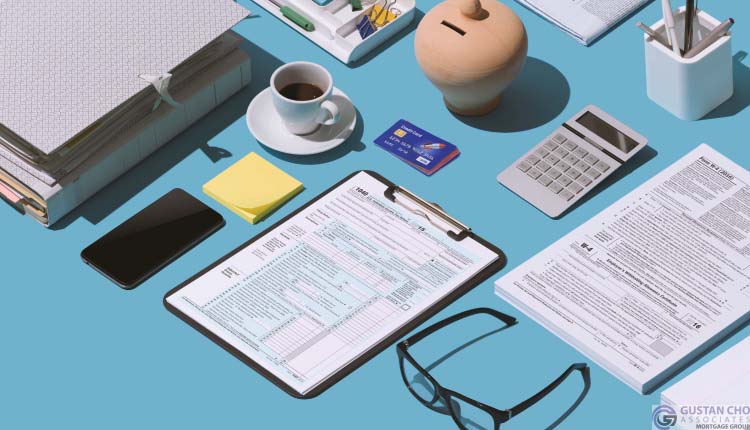Mortgage For Recent College Graduates
Mortgage For Recent College Graduates: A 2024 Guide to Buying Your First Home
Graduating from college is an exciting time filled with new opportunities. Alongside landing your first full-time job, many recent graduates are ready to take the next big step—buying a home.
The great news is you don’t need years of job experience or a perfect credit score to make this dream a reality. In this guide, we’ll show you exactly how you can qualify for a mortgage as a recent college graduate in 2024, even with no prior work experience.
Whether you’re considering purchasing your first home or simply exploring your options, this guide will cover everything from loan types and down payment options to how student loans may affect your mortgage approval.
Mortgage For Recent College Graduates? Is it Possible?
Yes, you absolutely can! Mortgage lenders understand that attending college full-time counts as “work experience” when it comes to qualifying for a loan. If you’ve been a full-time student for the past two years or more, that period can be used as equivalent to having two years of work history. The job offer you’ve received or are about to receive can seal the deal!
Alex Carlucci of Gustan Cho Associates explains: “Many recent college graduates think they need years of full-time employment to qualify for a mortgage. That’s not the case. If you’ve been a full-time student and now have a job offer, you’re already on track to buy a home. No need for mom or dad to co-sign on your loan!”
Talk To a Loan Officer Click Here
Mortgage Guidelines for Recent College Graduates
Here’s a simplified breakdown of what you’ll need to qualify for a mortgage:
- Job Offer or Employment Letter: Your job offer can be enough to start the home-buying process.
- Credit Score: While some loans require higher scores, you can qualify for an FHA loan with a credit score as low as 580.
- Down Payment: This can vary by loan type, but many recent graduates can buy with as little as 3% to 3.5% down.
Now, let’s dive deeper into these criteria so you can confidently prepare for homeownership.
Using a Job Offer Letter to Qualify
Many mortgage lenders can grant approval based on your prospective employer’s job offer letter or employment contract. This means you don’t need to wait until you’ve worked for months or years to qualify for a loan. Once you have that offer, you can start house hunting and get pre-approved.
Here’s how it works:
- You submit your job offer letter along with your loan application.
- Your lender reviews your application and credit history.
- Once approved, you can start looking for homes within your budget.
- Once an offer is accepted, your lender will likely request your first 30 days’ worth of paycheck stubs before finalizing the loan (known as “clear to close”).
Some lenders might even close the loan based on your job offer letter alone and ask for pay stubs after closing. But it’s always a good idea to ask your loan officer about their specific guidelines upfront.
Apply For a Mortgage: Click Here
Down Payment and Closing Costs
One of the most common questions recent graduates ask is: How much do I need for a down payment?
The answer depends on the type of loan you’re applying for. Here are a few common options:
- FHA Loans: These require just a 3.5% down payment, making them a popular choice for first-time homebuyers.
- Conventional Loans: You can qualify with as little as 3% down if you have good credit.
- VA Loans: If you’re a military service member or veteran, VA loans offer zero down payment and no mortgage insurance.
- USDA Loans: These loans are available in rural areas and offer a zero-down payment option.
If you’re struggling to come up with the down payment, don’t worry! Many lenders allow the down payment to be 100% gifted by a family member or relative. Additionally, seller concessions or lender credits can often cover closing costs. This means you can purchase a home with very little upfront cash.
What About Student Loans?

Many recent graduates have student loans and worry about how this might affect their mortgage approval. Fortunately, mortgage lenders will take a more flexible approach in 2024 regarding student loans, especially if you have deferred or income-based repayment plans (IBR).
Here’s how different loan types handle student loans:
- FHA Loans: FHA lenders will calculate your monthly payment based on either your IBR amount (if reported on your credit report) or 0.50% of your outstanding loan balance if your loan is in deferment or the IBR isn’t listed.
- Conventional Loans: Lenders, similar to FHA loans, will consider 0.50% of your remaining student loan balance as your monthly payment if you cannot furnish documentation of your specific repayment plan.
- VA Loans: If your student loans have been postponed for at least 12 months from closing, they will not be included in your debt-to-income ratio.
- USDA Loans: These will also use 0.50% of your outstanding balance for deferred loans, but income-based repayments are considered.
The takeaway? You don’t need to worry too much about your student loans preventing you from qualifying for a mortgage. When you talk to your lender about how to repay your loan, you can find a solution that works for you.
Qualifying for a Mortgage With No Work Experience
If you’re graduating and don’t have work experience beyond a part-time or summer job, don’t panic. Mortgage lenders are primarily looking at your education and your job offer. In many cases, they’ll waive the need for a two-year employment history if you provide proof of your full-time education, such as a college transcript.
High school graduates with new full-time jobs can also qualify for a mortgage by submitting an offer of employment. It’s all about proving you’ll have a stable income moving forward.
Special First-Time Homebuyer Programs for Recent Graduates
Another reason to get excited about buying a home as a recent college graduate is the number of first-time homebuyer programs available in 2024. These programs often offer lower interest rates, down payment assistance, or more relaxed credit requirements.
Below are some of the most popular first-time homebuyer programs:
- FHA Loans: The Federal Housing Administration supports these loans, which are a good choice for buyers with less-than-perfect credit or a smaller down payment.
- Freddie Mac HomeOne Mortgage: This program allows first-time buyers to purchase a home with just 3% down and no income limits.
- Fannie Mae HomeReady® Mortgage: A great option for low- to moderate-income buyers, offering a 3% down payment and flexible underwriting.
- State and Local Programs: Many states and cities offer programs specifically designed for first-time buyers, often providing down payment assistance or grants.
Understanding Debt-to-Income Ratio (DTI)
The amount of home you can afford largely depends on your debt-to-income ratio (DTI), the comparison of your monthly debt payments (such as student loans, car payments, and credit cards) to your monthly income.
For most loans, lenders generally prefer a DTI ratio of 43% or less. But if your DTI is close to this limit, there’s no need to worry—certain programs, like FHA loans, offer more flexibility and allow DTIs up to 50%.
If you’re worried that your student loans or other debts could cause your DTI to be too high, talk to your loan officer about what you can do. They suggest lowering your monthly debt by refinancing your student loans or paying off smaller debts before applying for a mortgage.
The Home Buying Process: Step-by-Step for Recent Graduates
Now that you know you can qualify for a mortgage as a recent college graduate, let’s walk through the home-buying process from start to finish.
- Get Pre-Approved: This is your first step. A lender will review your credit, job offer letter, and financial situation to pre-approve you for a loan amount. Pre-approval shows sellers that you’re serious and financially capable.
- House Hunt: Once pre-approved, you can start looking at homes within your budget. Work with a real estate agent to find properties that fit your needs.
- Make an Offer: Once you find the perfect home, you’ll submit an offer. If the seller accepts, the process moves forward.
- Loan Approval: Your lender will finalize your loan, verify your job and income, and appraise your home.
- Clear to Close: After all documents are in order, your lender will issue a clear to close, and you’ll sign the final paperwork to become a homeowner!
Conclusion: Ready to Buy Your First Home?
Owning a home marks a significant achievement, especially after completing college. With the right mortgage program and a job offer, you can confidently start your journey to homeownership.
If you’re ready to explore your options and get pre-approved for a mortgage, Non-QM Mortgage Lenders can help. We specialize in working with recent graduates and first-time homebuyers to make the process smooth and stress-free.
Whether you’re a recent college graduate with no work experience or want to learn more about how to qualify for a mortgage, we’re here to guide you every step of the way. Reach out today to get started on your path to homeownership!
FAQs About Mortgage For Recent College Graduates:
- 1. Can I get a mortgage right after college? Yes, you can! If you’ve been a full-time student for at least two years and have a job offer, many lenders will count your education as work experience.
- 2. Do I need a job to qualify for a mortgage as a recent college graduate? You need a job offer or employment letter from your future employer. Some lenders may approve your loan based on this offer even before you start working.
- 3. What credit score do I need to qualify for a mortgage as a recent college graduate? The minimum credit score varies by loan type. For an FHA loan, you can qualify with a score as low as 580, while other loans may require a higher score.
- 4. Can I use student loans to qualify for a mortgage? Yes, but lenders will factor your student loan payments into your debt-to-income ratio. If your student loans are deferred or in income-based repayment, the payment amount may vary depending on the loan type.
- 5. As a recent graduate, how much down payment do I need to buy a house? Depending on the loan type, you can get a mortgage with as little as 3% to 3.5% down. FHA loans require 3.5%, and conventional loans allow for 3%.
- 6. Can my down payment be a gift from a family member? Yes, most lenders will let a family member or relative gift you the entire down payment, especially for FHA and conventional loans.
- 7. What first-time homebuyer programs are available for recent college graduates? Programs like FHA loans, Freddie Mac HomeOne, and Fannie Mae HomeReady® are designed to help first-time buyers with low down payments and more flexible guidelines.
- 8. How does my student loan debt affect my mortgage approval? Lenders will calculate your monthly student loan payments as part of your debt-to-income ratio. Different loan programs handle student loans differently, but income-based repayment plans and deferred loans can help reduce this amount.
- 9. Can I qualify for a mortgage without work experience if I just graduated? Yes, if you provide proof of your full-time education and have a job offer or employment contract, most lenders will waive the requirement for two years of work history.
- 10. What are the steps to buying a home as a recent college graduate? The process includes getting pre-approved for a mortgage, house hunting, making an offer, finalizing the loan, and signing the final paperwork to become a homeowner.
This blog about Mortgage For Recent College Graduates was updated on September 6th, 2024.







